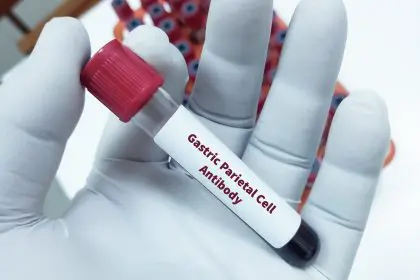Liver disease can be a silent whisper in your body, but when your body whispers, listen up! That’s the powerful message from one incredible survivor who almost lost everything to this silent killer that affects thousands of Americans each year. Get ready for a wake-up call that could literally save your life.
The wake-up call that changed everything
Picture this: You’re a super-busy mom running your own business, crushing your fitness goals, and juggling the chaos of family life. That was Kahley Schiller at 39, owning a successful pilates studio while raising two kids. Like most of us, she brushed off her tiredness as just another day in #momlife. Spoiler alert: It wasn’t.
Why being ‘just tired’ almost cost her everything
Here’s where things get real. That everyday exhaustion? It wasn’t normal. But in today’s hustle culture, who doesn’t feel tired? The problem is, this thinking nearly cost Schiller her life. When simple workouts started leaving her breathless and daily nausea kicked in, she knew something was up.
Red flags your doctor might miss
Let’s talk about those early warning signs that everyone — including medical professionals — might brush off:
- Unexplained fatigue that gets worse, not better, with rest;
- Breathlessness during familiar workouts;
- Persistent nausea;
- Yellowing eyes (this was the game-changer);
- Unexplained weight changes;
- Loss of appetite;
- Fluid retention.
The diagnosis nobody saw coming
Plot twist: It wasn’t stress or overwork. Schiller was experiencing acute liver failure caused by autoimmune hepatitis — a rare condition affecting only a tiny fraction of Americans. Think 4 to 43 people out of 100,000. That’s fewer people than can fill a small movie theater.
When your body becomes your enemy
Here’s the wild part about autoimmune hepatitis: your own immune system literally turns against your liver. It’s like having an internal civil war you never signed up for. And the treatment? Sometimes it’s not as simple as popping a pill.
The race against time
Despite aggressive steroid treatment, Schiller’s condition continued to deteriorate. The only solution? A liver transplant. But here’s the thing about transplants — they’re not like ordering a replacement part on Amazon. The waiting game began, and with it came the reality check of mortality.
The plot twist nobody expected
Just when things seemed darkest, a donor liver became available. But this isn’t your typical happily-ever-after moment. The surgery brought its own drama — pulmonary embolism and multiple strokes threatened to derail everything.
The comeback story we all need right now
Fast forward through months of intense recovery, and here’s where it gets good. Remember that pilates studio? Two months post-surgery, Schiller returned to teaching. Her doctors were shocked at her recovery speed, crediting her pre-surgery fitness level for the win.
Why this matters for you right now
Here’s the thing: Schiller’s story isn’t just about liver failure. It’s about listening to your body when something feels off. It’s about pushing for answers when doctors dismiss your concerns. And most importantly, it’s about understanding that your health is worth fighting for.
The takeaway that could save your life
- Trust your gut (literally and figuratively);
- Don’t accept “it’s just stress” if something feels seriously wrong;
- Keep pushing for answers;
- Stay as physically active as possible — it could save your life later;
- Build a support network before you need it.
The reality check we all need
Five years post-transplant, Schiller’s living her best life, running, teaching pilates, and spreading awareness about organ donation. But her story serves as a wake-up call: health issues don’t always announce themselves with dramatic symptoms.
What you can do right now
- Schedule that check-up you’ve been putting off.
- Document any unusual symptoms, no matter how small.
- Build a relationship with your health care provider.
- Stay active and maintain your fitness level.
- Consider becoming an organ donor.
The bottom line? Your body’s warning signs aren’t just inconveniences to be ignored. They’re messages that deserve attention. Schiller’s journey from the brink of disaster to triumphant recovery isn’t just inspiring — it’s a road map for anyone facing health challenges.
Remember: You are your own best advocate. Don’t let anyone dismiss your concerns when something feels off. Your life might literally depend on it.














